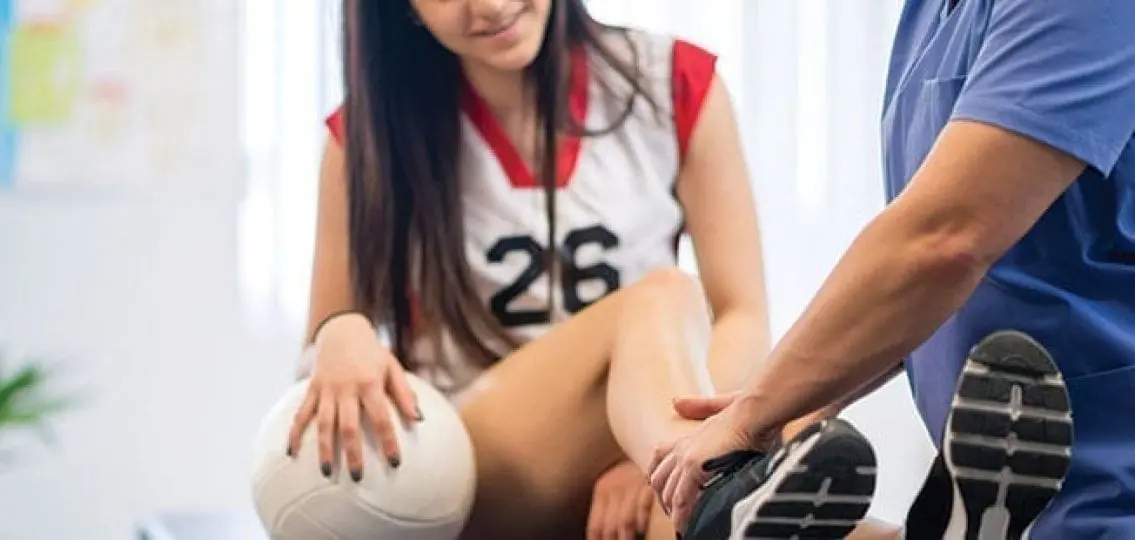“I have good news and bad news,” the doctor said.
For two weeks, my son had been complaining of knee pain, but my physician wife, who sees adult patients, had no clue what was wrong with him.

In contrast, the pediatrician took one look and diagnosed the problem: Osgood-Schlatter.
The bad news: there was nothing the doctor could do to address the underlying issue. To handle the painful symptoms, he suggested icing the knee, stretching, and reducing running and jumping activities.
The good news? The problem would resolve itself.
Knee Pain In Teenage Athletes
Osgood-Schlatter is a condition where the quadriceps muscle pulls the tendon connecting the kneecap and shin and stresses the growth plate in the still-growing adolescent bones. The result is painful swelling and tenderness below the knee—and possibly a bony bump as the growth plate tries to heal itself.
The condition affects up to one-fifth of teenage athletes, according to the Harvard Medical School health website.
Adolescents are especially at risk of developing Osgood-Schlatter if they play sports that involve lots of running and quick changes of direction like basketball or soccer.
Osgood-Schlatter used to be thought of as primarily affecting boys. However, this is no longer the case. According to the Mayo Clinic, as girls’ sports participation grows, an increasing number of girls are being diagnosed with Osgood-Schlatter.

A diagnosis of Osgood-Schlatter isn’t a sports-career ending condition, parents and teens will be relieved to learn. Teens with knee pain should see their doctor to rule out another problem that needs intervention. If it’s Osgood-Schlatter, though, it’s mostly a waiting game.
As our doctor informed us, the best cure is to finish the adolescent growth spurt.
“By the end of puberty, when the bones become denser and stronger, all symptoms usually resolve 100%,” says Dr. Mitchell Tunick of Boston Children’s Hospital. So hang in there.




